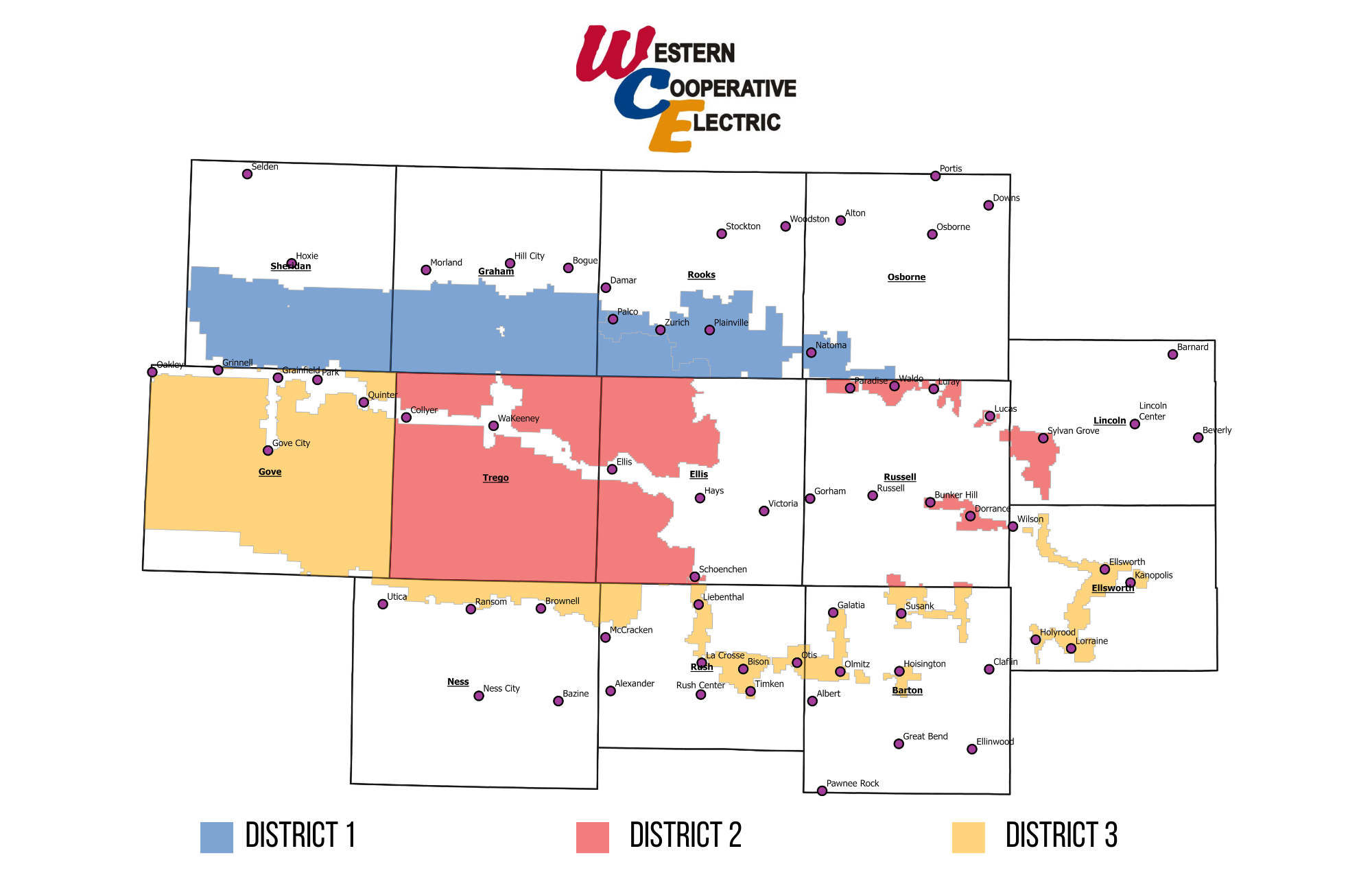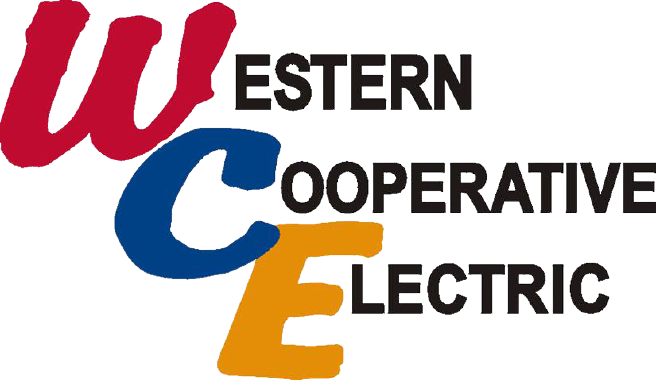Outages: 800-456-6720 | Office: 785-743-5561
Board of Trustees Election Process and Responsibilities
Board Trustee
Election Process & Responsibilities
Director Education
Cooperatives, by definition, are governed by a volunteer Board of Trustees that is elected by fellow members of the cooperative. Most electric cooperatives have boards of 7-13 leaders in the region who have been asked to dedicate their time and energy to the direction of the cooperative. Cooperative board members are referred to as trustees, directors or board members. Western is a member-owned, member-operated, member-governed, and self-regulated by a member-elected Board of Trustees.
Board members bring a variety of skills and experiences to the Board room. Education is a core tenet of the cooperative business model and ongoing director education is recommended to further enhance utility knowledge and board skills. Education sessions range from day-long courses that are part of a comprehensive certification program to webinars, online opportunities, and industry updates that are provided at affiliated organization events. Western Cooperative recommends new directors to become certified directors within 3 years. The electric cooperative endorsed director certification program requires a minimum of 13 different full-day sessions to reach the top level. Those courses are usually taught in conjunction with state or national meetings that are also important opportunities to keep current on a complicated and changing industry.
Directors do receive compensation for their monthly Board meetings at the local level. Many cooperatives meet during times that could be productive for employed or self-employed individuals. The compensation, often referred to as a per-diem, is paid for the day of the meeting but directors are not additionally compensated for the extensive work in advance of a Board meeting to study materials and be an effective representative of the membership. Directors will also receive per-diem to fulfill education expectations and for other important industry meetings.
Because cooperatives are not-for-profit, the public may perceive them as small operations. In fact, the largest electric cooperative in the state has $208 million in revenue, $507 million in assets, and 273 employees. The median for cooperatives in Kansas is $17 million in revenue, $38 million in assets, and 30 employees. Western has an annual revenue of approximately $37 million, serves over 12,000 meters, and has 58 employees. More than that, cooperatives are highly technical operations that require multiple professional skills. Not only must cooperative leaders have the expertise to manage the generation, transmission, and distribution of electricity, they must be adept at finance, accounting, engineering, construction standards, disaster management, human resources, public relations, communications, and working with a board.
Election Process
The full detail of the election process is outlined in the Western Cooperative Electric Association, Inc. By-Laws, rev. May 2025. This is available on-line https://www.westerncoop.com/bylaws .
Trustee Districts
The three trustee districts and 13 counties where Western Cooperative provides service are outlined below.

Requirements for Director/Trustee
- Must be a member of Western Cooperative Electric
- Cannot be employed by or financially interested in a competing enterprise or a business selling electric energy or supplies to the Cooperative.
- Cannot be a current employee or have been employed by the cooperative within the last five (5) years.
- Must reside on the Western’s system
Terms – 3 years with no term limits
Nominations
At least seventy-five (75) days prior to the annual meeting, the President appoints a nominating committee of three (3) Members from each of Western’s three (3) trustee districts, and each nominating committee shall nominate one or more Members from its respective district for each trustee to be elected from the district.
Additionally, any candidate who meets the requirements above and obtains a minimum of 15 signatures from members within their respective districts is eligible to run. The petition forms are available online here. The petition must show clearly which Committee-nominated candidate(s) are being opposed. Petitions must be submitted to the Secretary of the Cooperative not less than fifty (50) days prior to the meeting, and the Secretary shall post such nominations at the same place where the list of nominations made by the Committee is posted.
30 days prior to the annual meeting the Secretary mails the notice of the meeting, or separately, a statement of the Trustees to be elected from specific Trustee Districts, and the names and addresses of all nominees, showing separately those nominated by the Committee and those nominated by petition if any.
New Board Trustee Responsibilities
Understand the cooperative business model:
- The 7 cooperative principles
- What it means to operate as a not-for-profit cooperative business
- Cooperative among cooperative – “the network” including Touchstone Energy information
Understand the cooperative:
- Brief overview: number of members, area served, miles of line, number of employees, services provided, load make-up, ect.
- Recent history (storm outages, new construction, recent major accomplishments, ect.)
- Industry overview
- Major challenges and risk the cooperative faces
- The co-op’s purpose, mission, vision, and values
- The co-op’s strategic plans and activities underway in the next year or two to meet strategic goals
- Budget and financial overview
- Power supply and rates
- Review of recent member surveys, satisfaction data
- Tour of headquarters/meet key staff
- Organization structure and compensation structure/philosophy
Understand the board and how it functions:
- Legal issues
- Rights and responsibilities of directors / Fiduciary duty
- How the board functions, when it meets, basic parliamentary procedure overview
- Board structure and committees (if any)
- Governing policies – particularly standards of conduct, conflicts, provision, ect.
- Training options and requirements, upcoming training opportunities
- Confidentiality requirements / designated spokesperson
- Board use of technology (iPads, website, email)
- Who to contact for further information
- Board compensation and expense reimbursement
Information Resources:
- Bylaws and articles of incorporation
- Directors manual / governing policies
- Newsletters
- Annual report and most recent audit report
- Strategic plan
- Current budget
- Recent press clippings
- Brochures
- Calendar of meetings and event
- Recent board minutes
- Board roster
